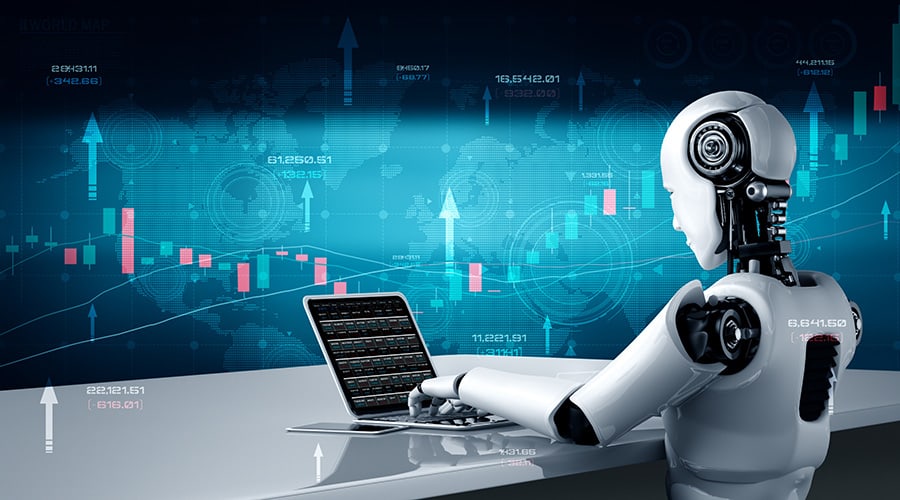
Embracing Artificial Intelligence (AI) is crucial for ensuring quick economic development for several reasons.
AI is the ability of a digital computer or computer-controlled robot to perform tasks commonly associated with intelligent beings.
If AI effectively supplements the work of higher-income individuals, it could result in a disproportionate rise in their earnings.
Additionally, the productivity gains experienced by companies adopting AI are likely to enhance returns on capital, potentially benefiting those with higher incomes.
Earlier, Kristalina Georgieva, the Managing Director of the International Monetary Fund (IMF), urged African governments to adopt AI as a catalyst for rapid economic development across the continent.
She emphasized AI's transformative potential in reshaping global economies, particularly in labor markets.
Using AI to salvage Ghana's economy involves leveraging technology and data-driven approaches to address key economic challenges and drive growth.
Here are some ways AI can be applied:
- Data analytics for economic forecasting: Implement AI-powered data analytics to forecast economic trends, including GDP growth, inflation rates, and unemployment.
By analyzing large datasets, AI can provide insights into the factors influencing the economy and help policymakers make informed decisions.
- Smart resource management: Utilize AI algorithms to optimize resource allocation in key sectors such as agriculture, mining, and energy.
For instance, AI can analyze soil and weather data to optimize crop yields in agriculture or predict demand and supply patterns in the mining sector.
- Enhanced financial services: Implement AI-driven solutions in the financial sector to improve efficiency, risk management, and access to financial services.
AI-powered algorithms can be used for credit scoring, fraud detection, and personalized financial advice, thereby promoting financial inclusion and stability.
- Infrastructure optimization: Use AI for infrastructure planning and optimization. AI algorithms can analyze transportation data to optimize traffic flow, reduce congestion, and improve logistics efficiency. Additionally, AI can help in energy management by optimizing power distribution and reducing wastage.
- Promotion of digital economy: Foster the growth of a digital economy by leveraging AI-driven technologies such as e-commerce platforms, digital payment systems, and online marketplaces.
This can spur entrepreneurship, create jobs, and attract investment in the digital sector.
- Healthcare optimization: Utilize AI for healthcare management and optimization. AI-powered systems can analyze healthcare data to identify disease outbreaks, optimize healthcare resource allocation, and improve patient outcomes, thereby reducing healthcare costs and improving public health.
- Education and skills development: Implement AI-driven educational tools and platforms to enhance learning outcomes and develop the skills needed for the digital economy.
AI-based adaptive learning systems can personalize learning experiences, identify areas for improvement, and provide targeted interventions to students.
- Promotion of innovation and research: Invest in AI research and development to spur innovation and technological advancement. Collaborations between academia, industry, and government can help develop AI solutions tailored to Ghana's economic needs and challenges.
- Policy formulation and evaluation: Use AI to analyze policy outcomes and evaluate their impact on the economy.
AI-powered simulation models can predict the effects of different policy interventions, enabling policymakers to make evidence-based decisions.
- Public sector efficiency: Improve the efficiency of government services through AI-driven automation and optimization.
AI-powered chatbots can provide citizens with information and support, while AI algorithms can streamline bureaucratic processes and reduce administrative overhead.
Overall, the successful application of AI to salvage Ghana's economy requires a comprehensive strategy that involves collaboration between government, industry, academia, and civil society, as well as a focus on building the necessary infrastructure and capabilities to harness the potential of AI for economic development.
Read Full Story




















Facebook
Twitter
Pinterest
Instagram
Google+
YouTube
LinkedIn
RSS